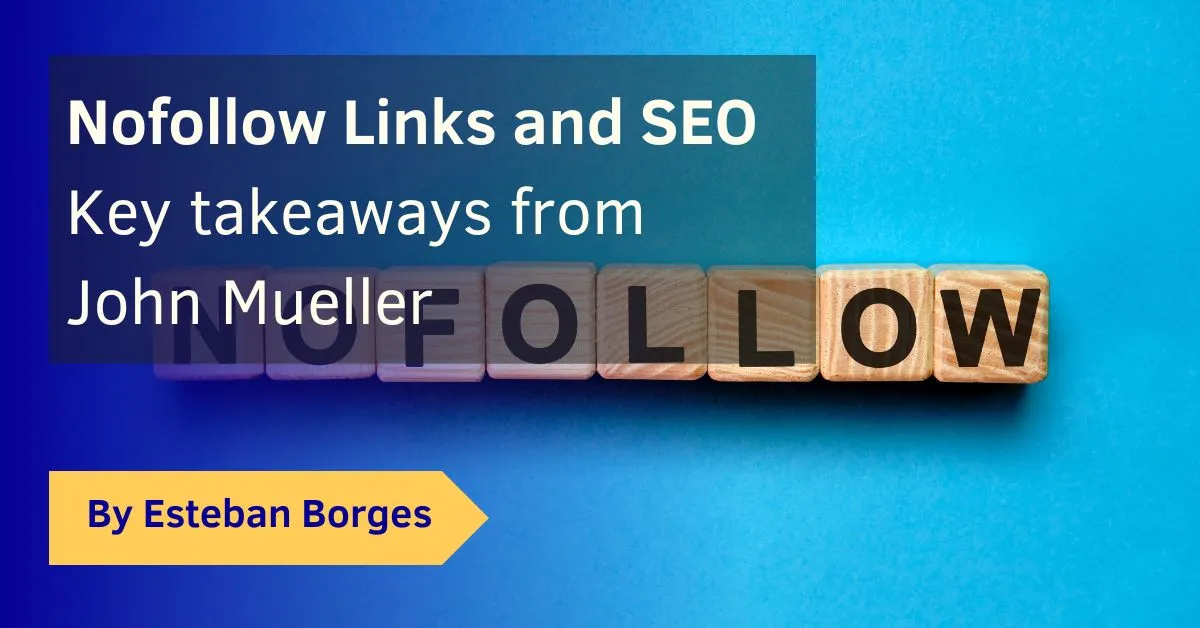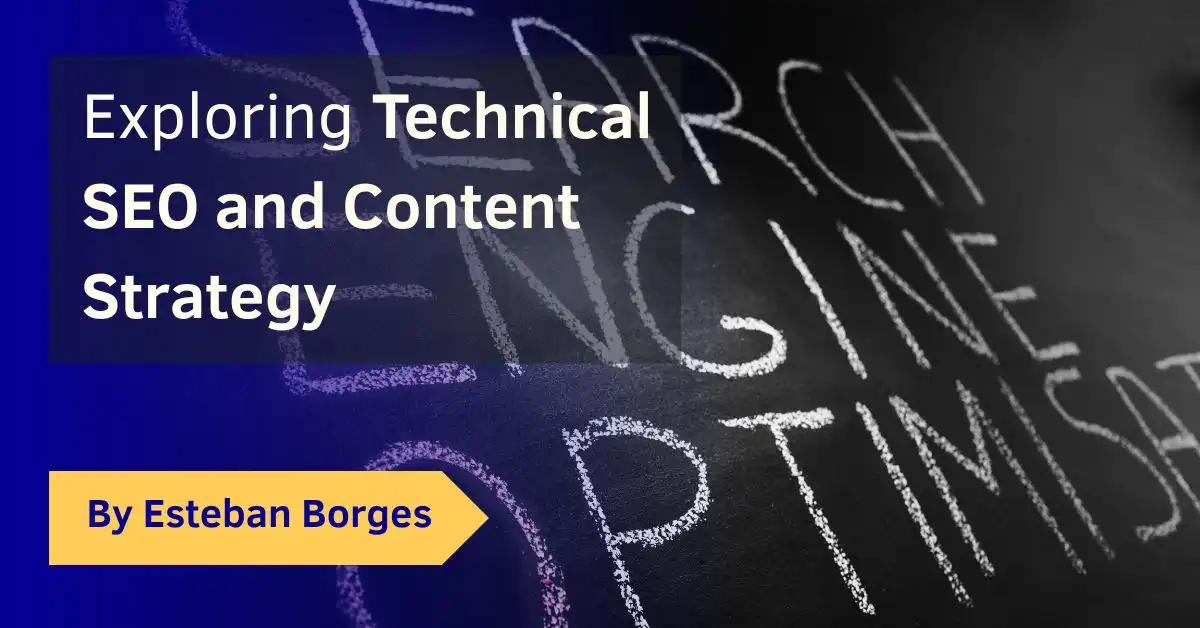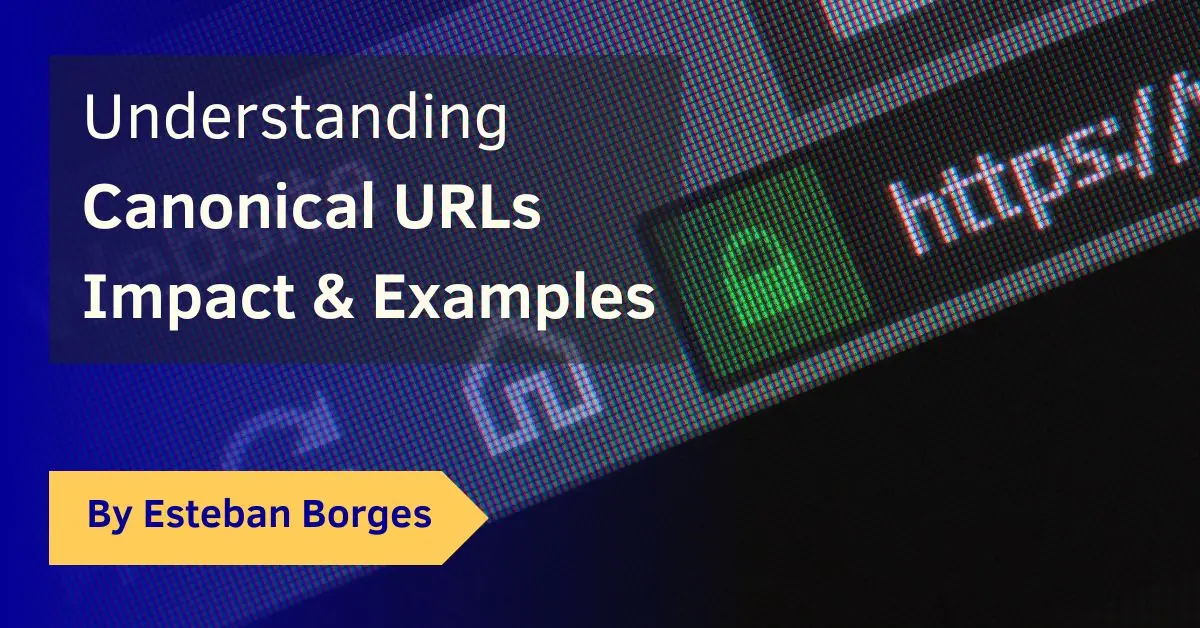As someone who’s navigated the ever-changing tides of SEO since 2007, I found this John Mueller’s interview from 2019 a goldmine of clarity in our often murky technical SEO world.
In this blog post, I’m excited to share Mueller’s insights on nofollow links, content strategies, and more, unraveling the complexities that we, as digital marketers and SEO managers, grapple with daily.
What are nofollow links?
Nofollow links, introduced by Google in 2005, are hyperlinks with a rel="nofollow" attribute that indicates to search engines that the link should not influence the ranking of the link’s target in the search engine’s index. Essentially, it’s a way for webmasters to tell search engines “don’t count this link as an endorsement.”
Originally, this attribute was conceived as a method to combat spammy links in comments and forums, and it quickly became a tool for indicating links in advertising or sponsored content. Although these links do not pass on link equity (commonly known as “link juice”), they can still be useful in directing traffic to a site. Over time, Google has evolved its approach to nofollow links, and as of March 1, 2020, it began treating them as “hints” for ranking purposes, indicating a more nuanced interpretation by the search engine
The Role and Impact of Nofollow Links in SEO
The topic of nofollow links was thoroughly examined. Mueller clarified their role, indicating that while they don’t directly boost a site’s ranking, they help search engines understand which links to consider in a page’s link profile. This insight is particularly crucial for managing links from untrusted sources or user-generated content.
He advocated for a balanced approach in link management, prioritizing the creation of authentic, high-quality content over manipulative link practices.
Balancing User Experience and Search Engine Requirements
The conversation shifted towards the balance between optimizing for search engines and improving user experience. Emphasizing a user-first approach, Mueller suggested that content should primarily deliver value to the audience, with SEO considerations coming secondarily.
He highlighted Google’s growing ability to recognize and reward user-centric content, signaling a move towards more intuitive and valuable search results.
SEO Myths Debunked: External Links and ‘Link Juice’
A key myth surrounding SEO – that external follow links can diminish a site’s authority – was dispelled. Mueller explained that Google’s algorithms are nuanced and don’t penalize sites for natural, relevant external linking.
This revelation underscores the importance of being a part of the web’s interconnected ecosystem, and that sharing valuable, trustworthy links enhances a site’s standing rather than diminishing it.
Practical SEO Tips from the Expert
Shifting focus to actionable advice, Mueller underscored the paramount importance of producing high-quality, informative content. He reminded webmasters that while technical SEO is critical, the heart of SEO success lies in addressing the genuine needs and queries of the audience.
He also touched on the significance of content being verified or endorsed by experts in certain fields (medical advise, financial advise, safety, legal, etc), boosting a site’s trustworthiness and value.
Conclusion on Using Nofollow for External Links
John Mueller’s interview is not just informative but a beacon guiding through the fog of technical SEO complexities. His emphasis on quality content and ethical practices resonates deeply with my own experiences: at the end it’s all about creating useful content for the users, providing value, which includes the links we are placing on our site.
Here are the key takeaways from this session:
- Nofollow Links: Essential in guiding search engines but don’t directly affect rankings.
- User Experience: Paramount in content creation, with SEO considerations being secondary.
- SEO Myths: Debunked, especially the notion that external follow links drain site authority.
- Content Quality: Remains king in the SEO realm, with expert endorsement adding significant value.
This insightful discussion with John Mueller reinforces the importance of a well-rounded and ethical approach to SEO, reminding us that at the heart of all our strategies should be the goal to genuinely inform, help, and engage our audience.



